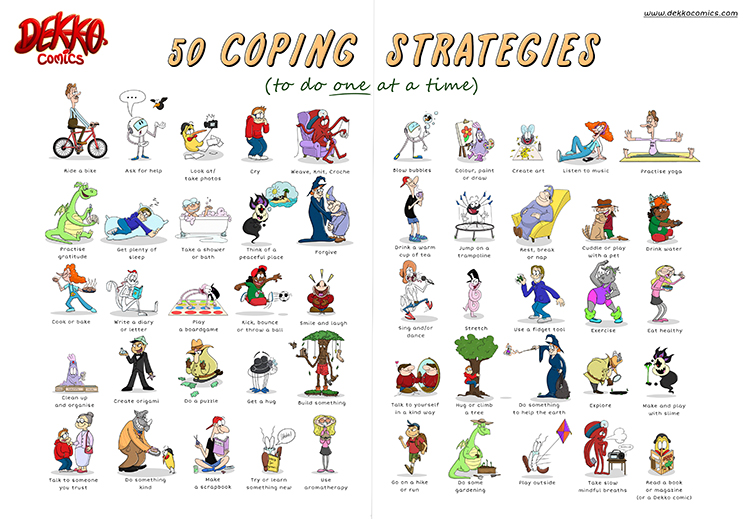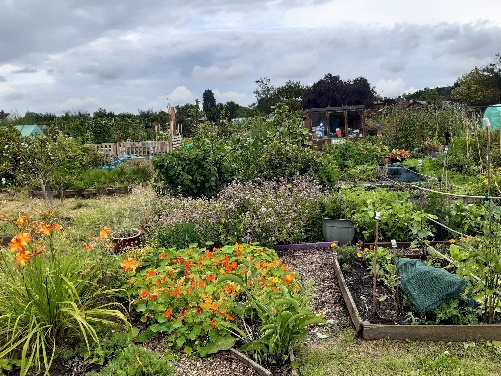Managing health and wellbeing
04 May 2022
Dr Susie Nyman, Curriculum Manager for Health and Social Care at the Sixth Form College, Farnborough

Mental Health Awareness Week is a chance for everyone to focus on mental health and wellbeing. In this blog I look back at some of my experiences during the pandemic, and share some of the things the students and I did to feel better and support one another.
Traditionally, students often study health and social care because at some time they have cared for a relative, friend or even required care themselves. Our subject has the highest number of disadvantaged students, many with mental health issues. Nevertheless, they’re kind, caring, and compassionate students who strive to help and empower others and see the best in people.
The college has a wonderful team of experienced SEND specialists who can nurture our students to reach results way beyond their wildest dreams. However, the students’ backgrounds can be extremely challenging and the pandemic certainly made these challenges harder to deal with.
Coronavirus arrives
20 March 2020, the last day of the spring term, is a date that is firmly engraved in my mind – it was the last I’d ever see my year 13 class in person.
As the world shut down, and lockdown moved from weeks to months, remote lessons became the norm and more demanding for our students. They had moved away from the physical safe space in our classroom where they enjoyed much-needed social interactions, to remote lessons staring at the screen for hours on end.
After many months I was able to return to college to live-stream lessons from the classroom. I enjoyed being able to separate college from home-life and speak to some of my colleagues (even though we were speaking wearing masks at the opposite ends of the corridor). It was one Friday afternoon that I had an epiphany…
All singing and dancing
When one of my students finished the course, I celebrated by playing, singing, and dancing to “I will survive” by Gloria Gaynor. As I finished singing, rather than logging off the students started clapping. One of them said, “You’ve made our week. Remote lessons are so boring, and we look forward to your lessons.” The other students started to congratulate the student for finishing, and a warm glow went through the class like a Mexican wave…
After that, I played music at the start and end of every lesson. Attendance and the mood of the class improved, and a competitive streak was set up. Everyone wanted to finish quickly so that they could be the next one to choose a song, and the whole class would sing it together.
Nevertheless, as time went on, it was evident that more students were struggling with their mental health. There is a counselling service at college and a portion of our students attended remote counselling sessions and were signposted to local mental health services.
When a tutor asked if I could keep an eye on another one of his students having difficulties, I thought, “what else can I do?”
Coping strategies
Rossie Stone from Dekko Comics kindly gave me permission to use his wonderful list of ‘50 Coping Strategies’ from the comic on Mental Health and Wellbeing.

Download the 50 coping strategies as a PDF
I asked the students for the coping strategies they would use, resulting in a plethora of ideas ranging from baking a cake, having a candlelit bath, taking the dog out for a walk and preparing a special meal for their mum. Here are the students’ top coping strategies:
- Listen to music
- Rest, break or nap
- Drink water
- Cry
- Exercise
- Sleep
- Take a shower or bath
- Cook or bake
- Look at or take photos
- Smile and laugh
- Clean up
- Cuddle or play with a pet
- Paint or draw
- Eat something healthy
- Get a hug
- Talk to someone you trust
- Have a cup of tea
- Sing or dance

Another fantastic resource is the NHS’s five steps to mental wellbeing, which I fully endorse for students and teachers to improve their mental health and wellbeing.
Helping others in the local community
I volunteer with the Blooming Marvellous community gardening project which works with people with mental health issues. Over the past couple of years, I’ve seen the benefits of gardening in improving mood, raising self-esteem, increasing attention span, promoting exercise and most importantly encouraging social bonds between the volunteers.

The Blooming Marvellous allotment in Aldershot
I donated a copy of Rossie’s Mental Health and Wellbeing comic and Charlie Mackesy’s book The Boy, the Mole, the Fox and the Horse to Blooming Marvellous during lockdown. It was shared with the group and gave the volunteers strength to get through the difficult times of isolation.
Helping others, particularly those who are less fortunate than yourself, certainly puts life into perspective. It can make you feel positive about how lucky you are, and appreciate your own family, friends, colleagues, gifts, and talents as well as boosting your own sense of purpose and creating stronger friendships. One of my students with anxiety joined the Blooming Marvellous project, increased her self-confidence and now is working as a landscape gardener in the local community.
Another project was the Blooming Marvellous ‘Train Project’, involving volunteers designing and making a model train and displaying it in the local shopping centre. The local children were so excited to see Thomas the Tank Engine after months of not being able to go out.

The initial train model

The completed project
My family also prepared and delivered homemade soup during lockdown to members of the community. The individuals looked forward to the weekly deliveries, and my family perfected the art of soup making using the vegetables grown in the Blooming Marvellous allotment, so it was a win-win all round! Reaching out to friends who were struggling during lockdown really helped everyone’s mental health.
Extra support for teachers
We’re all aware that teachers need support too, and I’ve been inspired by Action Jackson, who offers free webinars for teachers. He’s an amazing human being who really builds the confidence and self-esteem of teachers to wake up happy and ‘play their part in developing a generation that is happy, healthy, and successful’. Obviously, if a teacher is not happy, then the students won’t be happy either.
I’ve used some of his suggested techniques such as ‘The Mountain of Worth’ with my classes to raise students’ self-confidence and self-esteem. I thoroughly recommend his Happy School 365 book for all teachers to read for motivating learners.
In conclusion
Supporting our thousands of students over the past 27 years and particularly during the pandemic has been a steep learning curve. However, with an amazing supportive team at The Sixth Form College, Farnborough as well as in the community, we have been able to look ahead to the future with excitement and wonderment.
Little steps supporting our students and each another with our mental health can achieve remarkable results in life.
Stay connected
Share your thoughts and suggestions by commenting below. You can also email us at vocational.qualifications@ocr.org.uk or tweet us @OCR_Health. You can also sign up to subject updates and receive information about resources and support.
About the author
Susie is Curriculum Manager for Health and Social Care at The Sixth Form College, Farnborough and is passionate about discovering how children learn and supporting to succeed. As an international speaker, exam board moderator and CPD trainer, she thoroughly enjoys sharing her knowledge and experiences about Multi-sensory Teaching. She has published articles for BBC Bitesize, The BDA and The SEN Magazine, and she is writing a series of dyslexia friendly GCSE Biology booklets for Oaka Books. Susie has been nominated three times for the ‘TES FE Teacher of the Year Award’, an honour of which she is immensely proud.